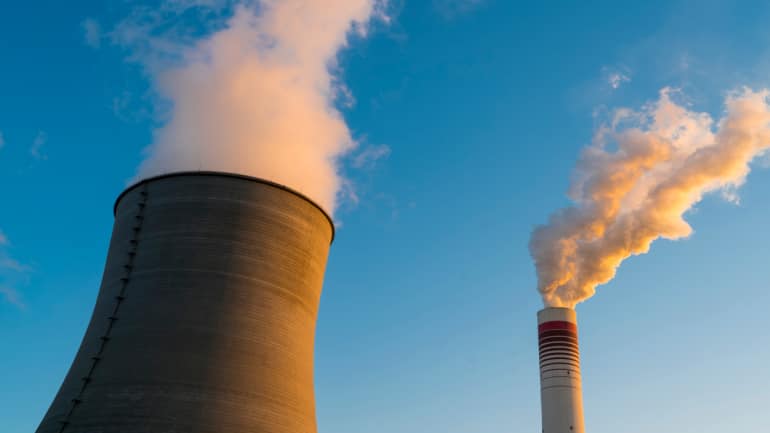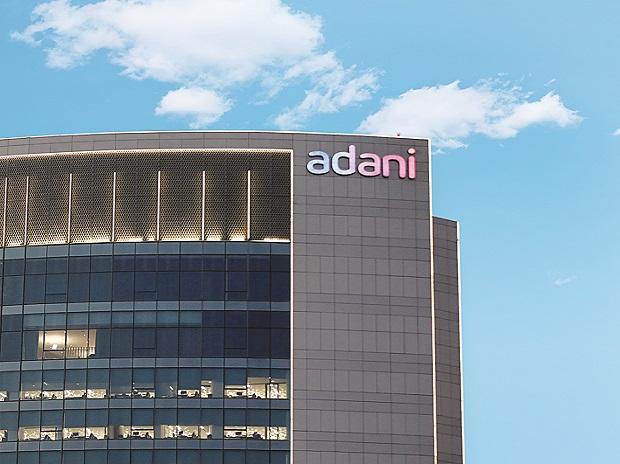The Adani And Ambani Handshake, Reliance Picks Up 26% Stake In Adani Power Project; Mahan Energen Ltd, A Project Shrouded In “Environment Clearances” And Villagers Protests
In a historic collaboration between two rival billionaires, Mukesh Ambani's Reliance Industries has acquired a significant stake in a power project owned by Gautam Adani's Adani Group. This partnership marks a departure from their perceived rivalry, showcasing a strategic alignment in the clean energy sector. However, the Mahan Energen Ltd Project is not without its fair share of controversy, read on to know more.

In a groundbreaking collaboration between rival tycoons, Reliance Industries, led by Mukesh Ambani, has acquired a 26 per cent stake in a Madhya Pradesh power venture owned by Gautam Adani while also striking a deal to utilize the project’s 500 MW electricity output for its own purposes.
According to separate filings with stock exchanges, Reliance will purchase 5 crore equity shares in Mahan Energen Ltd, a wholly-owned subsidiary of Adani Power Ltd, each with a face value of Rs 10 at par (totaling Rs 50 crore), and will leverage 500 MW of generation capacity for captive consumption.
/newsdrum-in/media/media_files/zcnhLi1scWen0LcZqByv.jpg)
The Adani VS Ambani Game
Although frequently portrayed as adversaries by the media and analysts, these two entrepreneurs from Gujarat have tactfully steered their paths to ascend to the top positions of Asia’s wealth hierarchy.
While Ambani’s ventures include diverse sectors such as oil, gas, retail, and telecom, Adani’s interests are concentrated in infrastructure, including seaports, airports, coal, and mining.
However, despite their differing domains, they have converged in the clean energy sector, where both have unveiled substantial investments.
Adani harbors ambitions of becoming the world’s leading renewable energy producer by 2030, while Reliance is in the process of establishing four gigafactories in Jamnagar, Gujarat, dedicated to solar panels, batteries, green hydrogen, and fuel cells.
Similarly, Adani is constructing three gigafactories for the production of solar modules, wind turbines, and hydrogen electrolysers.
Concerns arose when Adani Group expressed interest in participating in the auction for spectrum capable of supporting fifth-generation (5G) data and voice services. However, Adani diverged from Ambani’s strategy by acquiring 400 MHz spectrum in the 26 GHz band, which is not designated for public networks.
Contrary to expectations of rivalry, the relationship between these conglomerates has been far from adversarial.
In 2022, a company formerly associated with Ambani relinquished its stake in the news broadcaster NDTV to Adani, facilitating the latter’s acquisition.
Adani Power elaborated on the agreement in its filing, stating, “Mahan Energen Ltd (MEL), a wholly-owned subsidiary of Adani Power Ltd (APL), has entered into a 20-year long-term power purchase agreement (PPA) for 500 MW with Reliance Industries Ltd (RIL), under the captive user policy as defined under the Electricity Rules, 2005.”

The Mahan Thermal Power Plant
One unit with a capacity of 600 MW from Mahan thermal power plant under Mahan Energen Ltd (MEL), part of its total operating and planned capacity of 2,800 MW, will be allocated as a captive unit for this particular purpose.
A power generation facility designated as a captive generating plant (CGP) must adhere to regulations stipulating that the captive user(s) utilizing power generated from the captive generating plant for self-consumption must hold at least 26 percent ownership in the captive generating company.
According to the filing, “To benefit from this policy, RIL must maintain a 26 percent ownership interest in the captive unit proportional to the power plant’s total capacity. Consequently, it will invest in 5 crore equity shares of MEL, totaling Rs 50 crore for the proportional ownership stake.”
The filing stated, “This development establishes an exclusive arrangement between two corporate entities for the long-term purchase of 500 MW of power by Reliance Industries.”
Reliance’s specific intentions for utilizing the MEL power remain uncertain.
The company already operates captive units at large-scale oil refining and petrochemical complexes in Gujarat and Maharashtra, and its coal-bed methane (CBM) extractions in Sohagpur, Madhya Pradesh may not necessitate 500 MW of electricity.
Regarding the investment agreement, Adani Power disclosed, “APL, MEL, and RIL executed an investment agreement on March 27, 2024, at 7:00 pm. The transaction’s closure is contingent upon customary closing conditions, including obtaining necessary approvals.”
Similarly, Reliance’s filing provided a comparable disclosure, stating, “MEL, a power generation and supply company, was established on October 19, 2005. MEL’s turnover, as per its audited standalone financial statements for the fiscal years 2022-23, 2021-22, and 2020-21, amounted to Rs 2,730.68 crore, Rs 1,393.59 crore, and Rs 692.03 crore, respectively.”
Additionally, it added, “The investment is subject to standard conditions precedent, including MEL’s receipt of necessary approvals, and is anticipated to conclude within 2 weeks following the fulfillment of such conditions and approvals.”
)
Details
The Mahan Super Thermal Power Project, located in Bandhaura, Singrauli, Sidhi, Madhya Pradesh, India, is an operational power station with a capacity of at least 1200 megawatts (MW), consisting of multiple units, some of which are presently inactive.
It is also referred to as the Bandhaura Ultra Super Critical Thermal Power Plant (USCTPP Unit 1, USCTPP Unit 2), or simply the Bandhaura power plant.
Background information reveals that when it obtained environmental clearance in 2007, the project was initially conceived as a 2,000 MW project (4×500 MW).
However, by 2010, the project had been downsized to 1,200 MW (2 x 600 MW). Subsequently, in March 2016, it was expanded back up to 1,800 MW (3 x 600 MW).
The commissioning of the first unit, Mahan I, with a capacity of 600 MW, occurred in 2013.
Although the second unit, also 600 MW, was anticipated to be operational by 2014, delays in construction and operation arose due to challenges in obtaining mining approval for the Mahan Coal Block, the captive mine for the Mahan Power station and Mahan Aluminium power station.
Unit 2 is presently under construction, initially scheduled for commercial operation in June 2016, but later postponed to 2017. It was synchronized in July 2017 and slated for commissioning in 2018. Reports in March 2018 indicated that Unit 2 had achieved “stabilized operations.”

The Environment Concerns, Getting A License
In April 2023, minutes from an Environmental Appraisal Committee (EAC) meeting highlighted amendments in the Environmental Clearance (EC) for the operating plant.
The capacity was changed from 4×500 MW to 3×600 MW, and the EC was transferred from M/s Essar Power (M.P.) Ltd to M/s Mahan Energen Limited.
The EAC approved amendments related to continuous monitoring for radioactivity and heavy metals in coal and fly ash.
News reports in March 2024 revealed that Mahan Energen, a subsidiary of Adani Power, had entered a 20-year Power Purchase Agreement (PPA) with Reliance Industries for 500 MW from the Mahan Super Thermal coal plant under India’s captive power user policy.
This agreement presumably involves one of the power station’s 600 MW units, likely Unit 1 or 2.
Unit 3
In April 2016, Essar obtained environmental clearance for a 3 x 600 MW coal-fired plant.
As of May 2020, there was no indication that unit 3 was in the process of being constructed.
Given Essar’s financial challenges in 2018 and the lack of progress on unit 3 since 2016, it appeared probable that the project had been suspended or canceled.
However, Adani’s request to transfer the Environmental Clearance in 2022 suggested the potential revival of plans for unit 3.
By November 2022, official documents only mentioned an existing 1,200 MW capacity and a proposed 1,600 MW expansion, making the addition of a third 600 MW unit seem improbable.

Proposed Expansions Phase II Expansion
In December 2021, Essar Power M.P. applied for a 1,600 MW (2×800 MW) expansion known as the Bandhaura Ultra Super Critical Thermal Power Plant.
In January 2022, the Expert Appraisal Committee recommended the project for the grant of Standard Terms of Reference (ToR) to conduct an Environmental Impact Assessment (EIA) study for the expansion.
Terms of Reference were formalized in February 2022 and transferred officially in November 2022.
In April 2022, the Ministry of Environment, Forest and Climate Change (MOEF) listed the transfer of Environmental Clearance from the initial 3×600 MW proposed expansion to the revised 2×800 MW expansion as “Returned to proponent due to Shortcoming(TransferEC).”
Additional information was requested from Mahan Energen Ltd (Adani Group).
In February 2023, Adani submitted a new Environmental Clearance application for the proposed expansion instead of a transfer.
In March 2023, the Environmental Clearance was initially deferred due to deficiencies in the proposal but was eventually granted in May 2023.
In June 2023, geotechnical investigations were completed at the Phase II expansion site in preparation for construction.
In July 2023, Adani Watch reported discrepancies between the draft Environmental Impact Assessment (EIA) report for the Bandhaura power plant expansion and the subsequent approval by the Expert Appraisal Committee (EAC), particularly regarding coal transportation methods.
Mega Contracts
According to reports from August and September 2023, Mahan Energen had entered into a contract worth Rs 40 billion with BHEL for the procurement of power generation equipment for the expansion.
One report estimated that the project, aiming for a 2 x 800 MW expansion, would be finalized within 35 months from August 2023, potentially reaching completion by July 2026.
The project was listed among ‘Thermal Plants Under Construction’ in the November 2023 Broad Status report by the Central Electricity Authority, with progress still indicated at 0% for both units.
Expected completion dates were projected for January 2027 for Unit 1 and June 2027 for Unit 2.
Phase III Expansion
In February 2024, minutes from the EAC’s thermal project meeting included a proposal for a second expansion of 1,600 MW (2 x 800 MW) at the Bandhaura (Mahan Energen) power station.
If approved, this “Phase III” expansion would increase the coal plant’s total operating capacity to 4,400 MW. The committee recommended the grant of Terms of Reference (TOR) for the proposed Phase III expansion.
Ownership and Financial Challenges
Media reports in May 2018 indicated that ICICI Bank, along with other financial institutions like Rural Electrification Corp, Power Finance Corp, Punjab National Bank, and IDFC, sought to sell Essar Power to recover dues amounting to Rs 6,600 crore.
Essar Power, facing financial strain, has approached the ICICI Bank-led consortium for a strategic restructuring of its debt.
Notably, Essar Power holds a power purchase agreement for 300 MW from the Mahan plant with its group company, Essar Steel, which is undergoing insolvency resolution.
For the remaining 900 MW of untied capacity, the company aims to secure medium-to-long term power purchase agreements.

Sale to Adani Power
In June 2021, reports surfaced indicating Adani Power’s acquisition of the coal plant from Essar for Rs 3,000 crore. The transaction’s completion is subject to approval from the NCLT and fulfillment of conditions precedent under the Resolution Plan.
In March 2022, it was reported that the acquisition had been finalized.
The acquisition cost of Essar Power M P Ltd, undergoing insolvency resolution, exceeded Rs 4,250 crore, inclusive of the estimated expenses for environmental and emission compliance.
In April 2022, Adani seemingly submitted an application to transfer the Environmental Clearance for the 3×600 MW Mahan Super Thermal Power Project and the Terms of Reference for the expansion.
Although the proposal was listed as “Accepted by MS” on May 13, 2022, and appeared to be accepted by September 15, 2022, it seemed that the EC transfer only pertained to the existing 2 x 600 MW units.
In March 2023, Mahan Energen accepted an application from Adani for the proposed 1,600 MW expansion of the plant. Further details are provided above.
Coal Procurement
Originally, coal for the project was intended to be supplied from the Mahan coal block through a 50:50 joint venture with Hindalco Industries, known as Mahan Coal Ltd.
(Note: This should not be confused with Hindalco Industries’ 900MW Mahan Aluminium power station, also utilizing coal from the Mahan coal block.)
In the expansion application of 2021, the new proposal envisioned the utilization of coal from nearby commercial coal mines and water from the Rihand reservoir.
Stalled Coal Mine
Mahan Coal Ltd (MCL) is jointly owned by London-listed Essar Energy and India’s Hindalco Industries for mining the Mahan coal block in India.
In its 2010 annual report, Essar expressed dissatisfaction with the lack of approval for developing the Mahan coal block: “While optimistic about a favorable outcome, we cannot supply coal from our own mines before the commissioning of the 1,200 MW Mahan I coal-fired power project. The first unit of this power plant is scheduled to commence commissioning in September 2011. Therefore, we have applied to Coal India Limited for tapering coal linkage until our mines are operating at full capacity. We anticipate receiving this clearance shortly.”
The 2013 annual report revealed that Essar had received stage 1 forest clearance for the Mahan coal block. Additionally, plans were made to procure additional coal from Coal India’s e-auction process and consider the use of imported coal.
Furthermore, the 2013 annual report outlined:
The Stage 2 clearance progress was on track, and its receipt was anticipated in the coming months. Upon securing it, production of the first coal was estimated to take 9 to 12 months, followed by a ramp-up to full capacity of 8.5 mmtpa within two to three years.
In addition to e-auction and imported coal, Essar Energy had applied for medium-term coal allocations under Coal India’s tapering coal linkage system. Allocation of a tapering coal linkage would enhance the economics of Mahan I.
In February 2014, Mahan Coal Ltd received environmental approval to extract approximately 100 million tonnes of coal.
However, the coal allocation was revoked in September 2014 following a Supreme Court order.
In the subsequent reallocation process starting in February 2015, Essar Power secured the bid for the Tokisud North coal mine at a bid of Rs.1,110 per tonne of coal mined.
Coal from this mine would be utilized for Essar’s Mahan plant, with mining operations expected to commence in 2015.

Protests and Opposition
Local villagers in the forest area where the proposed Mahan mine was to be located expressed their intention to resist the mine.
According to Reuters, final forest clearance for MCL was granted by environment minister Veerappa Moily, who approved over 70 significant projects worth over $40 billion in less than three months, some of which were stalled due to environmental concerns under previous administrations.
Moily faced accusations of rushing approvals for industrial interests.
Residents claimed that clearance for the project violated the Forest Rights Act, a 2008 law granting affected communities rights over the forests.
Allegations surfaced regarding a rigged village vote in Amelia in favor of the MCL mine, prompting an inquiry by district authorities. The outcome of the investigation could jeopardize the mining project.
Greenpeace asserted that MCL’s project would lead to the felling of hundreds of thousands of trees and negatively impact the livelihoods of 14,000 people engaged in activities such as selling mahua seeds and tendu leaves, used for making cheap alcohol and hand-rolled cigarettes (beedi), respectively.
In July 2023, Adani Watch reported that coal dust from trucks transporting coal to the power plant was engulfing local villages, marketplaces, forests, and fields, causing hardship to residents.
A member of the Khairwar community lamented the impact of industrial development on their livelihoods and environment, expressing grievances over the unequal distribution of benefits from economic progress in the Singrauli area.




